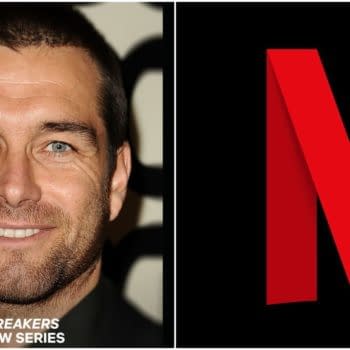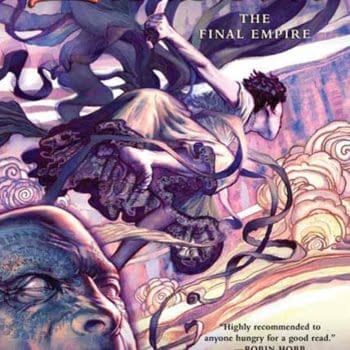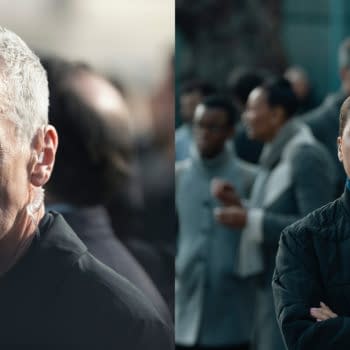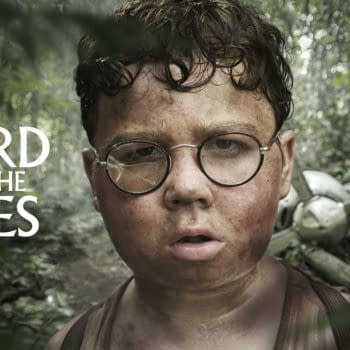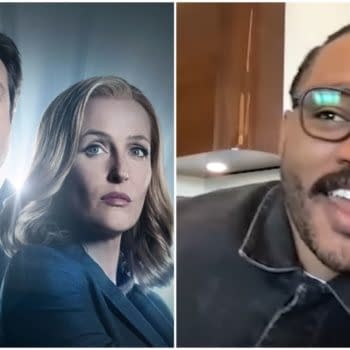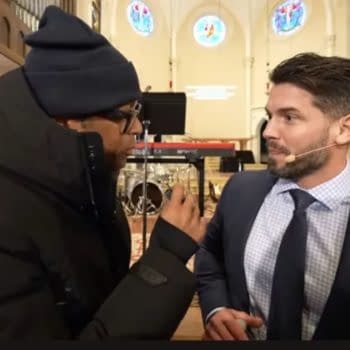Posted in: HBO, TV | Tagged: The Mortician
The Mortician: Director Joshua Rofé on Bringing HBO Docuseries to Life
HBO's The Mortician director Joshua Rofé discusses how he came across the true crime story, its unusual subject matter, and more.
HBO's latest true crime documentary, The Mortician, is a real-life slice of LA Noir, chronicling a trusted family-owned funeral home that hid behind a façade of decency and propriety to take advantage of loved ones at their most vulnerable moments. In the early 1980s, David Sconce, scion of the Lamb family, took over the family business and sought to exploit the deceased in numerous ways to expand their earnings. Driven by profit, the Lamb Funeral Home in Pasadena, California, engaged in years of morally questionable and inhumane practices. We spoke to director Joshua Rofé about how he came to make the documentary and how he interviewed Sconce after the latter's release from prison to talk openly about what he did.
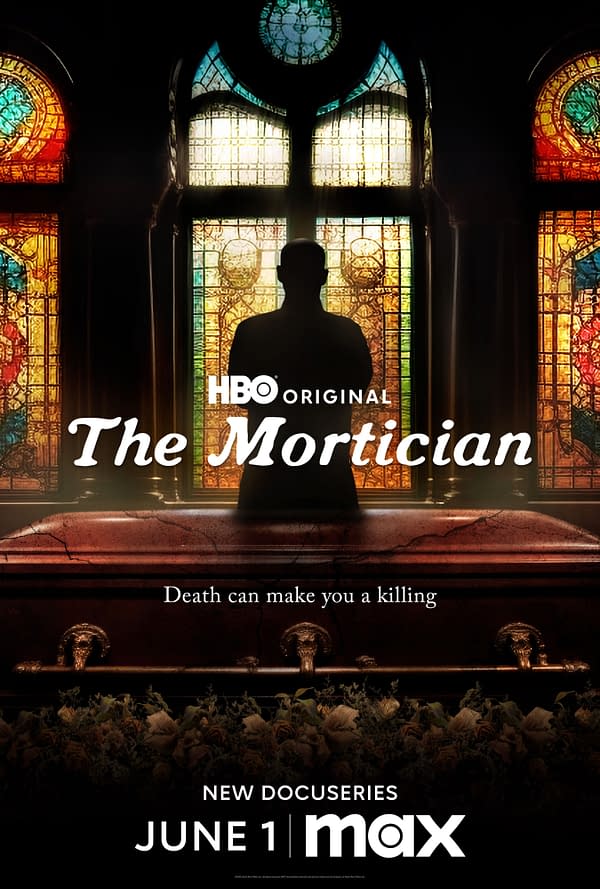
Hi Josh, congratulations on getting The Mortician off the ground. It's one of the more unique and unusual subjects for a True Crime documentary, including the fact that people are already dead and what one man did with the bodies. What inspired you to pursue it as a documentary project?
JR: This project started way back in December of 2020. I was at home, like everyone else, and I was remotely editing two projects – a doc series called Sasquatch and a doc feature about the painter Bob Ross. I knew both projects would be wrapped in a couple of months, and I was looking for what I wanted to do next. I love LA noir stories, and I started looking online for something in that vein. Eventually, I stumbled upon a series of old LA Times articles about the Lamb Funeral Home in the 1980s. I was completely captivated. I shared the articles with my producing partner, Steven Berger, and both of us had the same feeling – we knew immediately that this would be our next project.
We reached out to David Sconce, who was still in prison at the time, and asked him if he'd be open to an interview. He said yes, and that kicked it all off.
Shaping a True Crime Documentary
The documentary explores a series of crimes committed by a man in the death industry itself. It introduces us to an entire world that many people don't know about and might find a bit morbid to ever delve into. Still, it's a very rich demimonde that covers themes of family, legacy, a family business, the ethics of that business, the spiritual and moral underpinnings of the funeral business, and how one man exploits it. Can you talk about how you found the structure and the narrative of the series, and how you shaped it when you came to edit it in post?
For the first two and a half years of making this series, we didn't have our interview with David. We'd been speaking with him while he was in prison, and we knew he was eligible for parole, but it wasn't clear that it would be granted. For a long time I was living with that painful reality: we might never get to interview the man at the center of this story.
In the meantime, I and my team of extraordinary editors – Azin Samari, Morgan Hanner, and Caitlyn Hynes – got to work on piecing together all the other elements of the story. We interviewed upwards of 40 people involved with the scandal, and we used those interviews to piece together the series as best we could. Then, all of a sudden, my producer, Steven, calls me and tells me that David is getting out of prison in 48 hours. Not only that, but he's agreed to meet us at the prison gates and do an interview right after he's out.
Of course, that interview completely changed everything – we now had our main character on camera. From a structural standpoint, we basically started over: we went back to the notecards on our board and entirely reconceptualized our story with David at the forefront. After two more years of editing, we arrived at what the series is today.
The best documentaries don't set out to outright state their opinions on the subject. David Sconce could be said to have done something immoral and reprehensible that brought his family business and his great-grandmother's legacy into disrepute. How did you get him to open up so much, given what he did?
Talking to The Mortician Himself
I hesitate to take credit for this – David is an incredibly colorful personality with a deep desire to keep talking and to impress and intimidate everyone he speaks with. I gave him the space and time to tell his version of events, which turned out to be very illuminating.
You could say there's something darkly comic and absurd about the whole criminal venture, no matter how solemn the story was. Were you ever tempted to see it that way while respecting how seriously the families and the aggrieved felt about what Sconce had done?
It's interesting you say that – last week, we had a premiere screening for our first episode at a great theater in LA called Vidiots, and my colleagues and I were thoroughly surprised by the number of laughs these characters and their stories elicited. Of course, we knew that there was absurdity in this world, a level of quirk, a lot of big personalities, but we never wanted to reach for a comedic moment beyond what was already there.
What do you hope viewers will take away from watching the series?
This series is going to hit people in different ways, depending on their personal relationships with grief and loss, and cremation, for that matter. I don't have any preconceived notions about what I want people to feel – I hope they find their own meaning in this story.
The Mortician is streaming on HBO MAX.





